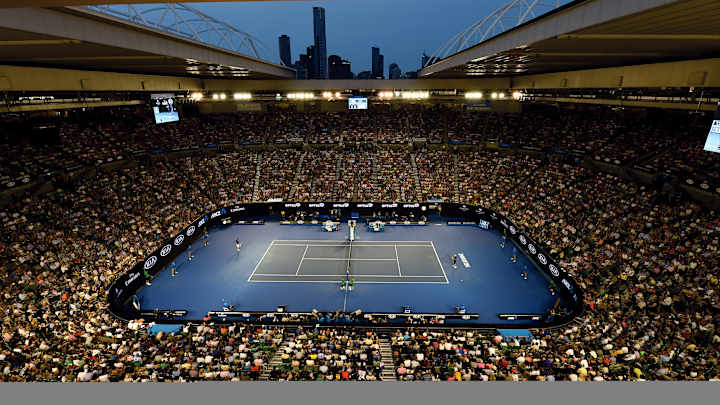AP Source: Review coming of tennis' anti-corruption group

MELBOURNE, Australia (AP) Tennis leaders are taking steps at damage control as they grapple with allegations of match-fixing in recent media reports, which have cast a shadow over the first Grand Slam of the year and shaken confidence in the integrity of the sport.
An independent review of tennis' anti-corruption unit was announced Wednesday at the Australian Open in the wake of allegations that officials had failed to properly investigate suspected cases of match-fixing.
ATP Chairman Chris Kermode said immediate action was needed to ''restore public confidence in our sport'' and that ''nothing is off the table.''
''I think this is a very bold step. We need to address the perception, public confidence, hit it head on. We don't have anything to hide at all.''
The creation of the review, which was earlier reported by The Associated Press, came 10 days after the BBC and BuzzFeed News published stories alleging that tennis authorities had suppressed evidence of match-fixing and failed to thoroughly investigate possible cases of corruption involving 16 players who have ranked in the top 50 over the past decade. No players were named in the reports.
The review will be funded by the Tennis Integrity Board, which oversees the anti-corruption unit set up by the sport in 2008 to combat match-fixing. It will be led by Adam Smith, a London-based lawyer who is an expert in sports law.
''The last thing anyone wants is another sports body investigating itself,'' Kermode said.
Andy Murray agreed that having an outsider conduct the inquiry would give it added credibility.
''Yeah, that's positive. Surely. I think in these situations I think people become skeptical when it's sort of kept in-house a little bit,'' he said after his quarterfinal win over David Ferrer on Wednesday.
Kermode said the review panel would have an open-ended deadline and budget and that its findings would be made public. He also said tennis' governing bodies were committed to acting on every recommendation of the panel.
Among the issues the panel is expected to examine is whether the Tennis Integrity Unit (TIU) needs additional resources to do its job, how it can improve transparency without compromising its investigations, and whether the sport needs to expand its integrity education programs.
The lack of funding should be of paramount concern, Martina Navratilova said Wednesday. Officials say the unit has received $14 million in total investment since 2008.
''We're talking about thousands and thousands of matches, so the only way to really control that is for the ATP, WTA and ITF to work together and put more money into the integrity unit,'' said Navratilova, who won 18 Grand Slam singles titles and is a long-time ambassador for the sport.
''How do you police thousands and thousands of matches without a lot of money? We're talking millions of dollars here that are needed.''
Another issue that is likely to be addressed is the sponsorship of tournaments by gambling companies, which Navratilova, Murray and others have described as hypocritical. One of the Australian Open's sponsors this year is the British betting agency William Hill.
Last week, tennis authorities vehemently rejected the allegations in the BBC and BuzzFeed reports and pointed to the fact the TIU had sanctioned 18 people for match-fixing since its inception, including five players and one official who received lifetime bans.
Philip Brook, head of the Tennis Integrity Board, reiterated Wednesday the recent media reports ''did not reveal anything new,'' but acknowledged that sports gambling has evolved in recent years with the widespread expansion of online betting, making a review of tennis' anti-corruption efforts necessary.
Brook noted, for instance, that there are now some 68 different possible bets that can be placed on tennis matches, more than half of them during play.
Kermode said some of the players he's spoken to were ''very angry'' about the allegations in the reports because of the damage that's been done to their reputations. He cautioned against publicly naming players suspected of wrongdoing without evidence.
It's a stance that's been echoed by many players at the Australian Open.
''You shouldn't put names out there on suspicion,'' doubles player Bob Bryan said. ''You better have some hard evidence before you take someone's reputation down. ... That kind of stuff sticks with you for a long time.''
---
AP Tennis Writer Howard Fendrich contributed to this story from Washington.
